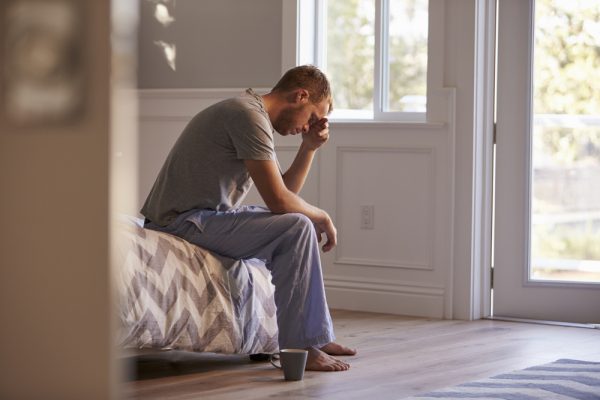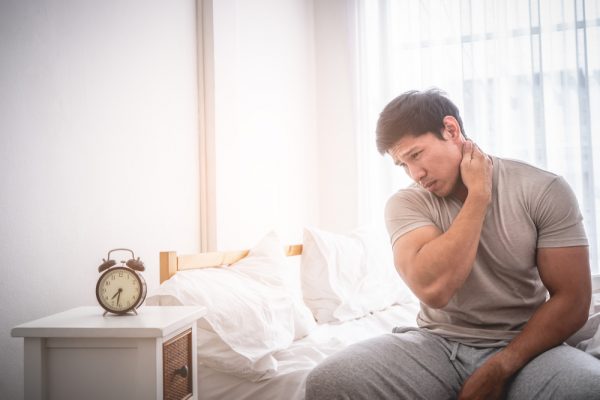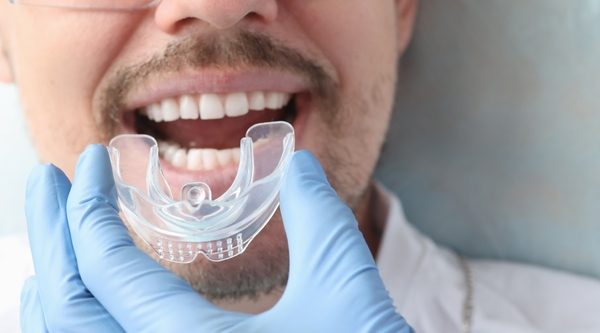The Link Between Sleep Apnea and Personality Changes
Sleep apnea is a prevalent sleep disorder that affects millions of people worldwide. However, many are unaware of the deep-rooted connection between sleep apnea and mental health. Specifically, you may not know about how suffering from sleep apnea can affect your personality.
In this comprehensive guide, Fort Worth sleep apnea dentist, Dr. Sheila Birth of Birth and Fletcher Orthodontics aims to shed light on the significant impact of sleep apnea and personality traits, and its association with various mental health disorders. Learn more about sleep apnea’s potential effects on your personality and how Dr. Birth can help by dialing (817) 502-9103 or keep reading the guide below.

Sleep Apnea and Personality Traits
Sleep apnea, particularly obstructive sleep apnea, is known to affect mental health by causing sleep disturbances. These disturbances can lead to alterations in personality traits. People with obstructive sleep apnea syndrome often report excessive daytime sleepiness, sleep fragmentation, and drowsiness, which can impact their concentration, alertness, and cognitive abilities.
Mood Swings
A well-established connection exists between sleep apnea and mood swings, as disrupted sleep influences emotional regulation and stability. Sleep apnea affects mental health in various ways, including:
- Exacerbating psychiatric disorders
- Poor sleep
- Fatigue
- Irritability
- Difficulty concentrating
These symptoms may lead to mood fluctuations, which can be especially challenging for those with untreated sleep apnea.
Irritability
Irritability, a feeling of agitation or annoyance resulting from difficulty in managing stressors, is frequently observed in those suffering from sleep apnea. Sleep deprivation is the primary cause of irritability in sleep apnea patients, and other factors such as anxiety, depression, and hormonal imbalances can also contribute.
The consequences of irritability in sleep apnea patients can be significant, causing difficulty in interpersonal relationships, reduced efficiency, and a decrease in quality of life.
Hypochondriasis and Psychopathic Deviance
Sleep apnea can contribute to hypochondriasis and psychopathic deviance by impacting mental health and well-being. Hypochondriasis is a mental disorder characterized by an intense preoccupation with the fear of having a serious illness, while psychopathic deviance is a personality disorder characterized by a lack of empathy, impulsivity, and disregard for social norms.
Poor quality sleep resulting from sleep apnea can lead to symptoms such as:
- Mood swings
- Irritability
- Anxiety
- Depression
- Bipolar disorder
- Post-traumatic stress disorder
The indications of sleep apnea-related hypochondriasis and psychopathic deviance may include:
- Excessive daytime sleepiness
- Guilt
- Pessimism
- Low self-esteem
- Somatic concerns



Sleep Apnea and Mental Health Disorders
Research has indicated that sleep apnea is linked to various mental health disorders, including:
- Anxiety
- Depression
- Bipolar disorder
- Post-traumatic stress disorder
Sleep apnea can disrupt the body’s natural sleep cycles, leading to heightened emotional distress and an increased risk of developing mental health conditions.
Anxiety
Individuals with sleep apnea are nearly four times more likely to experience anxiety than those without sleep apnea. Sleep apnea can heighten anxiety due to its involvement in hyperarousal and the increased probability of developing anxiety disorders. Potential symptoms of anxiety stemming from sleep apnea include:
- Insomnia
- Fatigue
- Sleep disturbance
- Restlessness or tension
- Profuse perspiration
- Dizziness
- Peevishness
- Sensations of choking upon awakening from slumber
Despite anxiety’s debilitating nature, effective treatments are available to those suffering from sleep apnea-related anxiety. By addressing the root cause of sleep apnea, you can experience a reduction in anxiety symptoms and an improvement in mental health.
Post-Traumatic Stress Disorder
Sleep apnea may exacerbate the symptoms of post-traumatic stress disorder (PTSD), as disturbed sleep can impede the healing process and increase emotional distress. PTSD sufferers often experience vivid nightmares and interrupted sleep, which can be further disrupted by sleep apnea.
Depression
Sleep apnea has a three times greater likelihood of causing depression in individuals compared to those without sleep apnea. The close relationship between sleep apnea and depression is due to:
- The impact of poor sleep quality on mood swings
- The disruption of normal sleep patterns
- The decrease in oxygen levels during sleep
- The increase in stress hormones
These factors can contribute to the development of major depressive disorder.
Treating sleep apnea can significantly decrease the symptoms of depression and restore the ability to sleep. Signs and symptoms of sleep apnea-related depression may include:
- Excessive daytime sleepiness
- Fatigue
- Irritability
- Difficulty concentrating
- Feelings of sadness or hopelessness
It’s important to seek medical attention for an accurate diagnosis and appropriate treatment.
Bipolar Disorder
Bipolar disorder, a mental health disorder characterized by extreme mood swings between mania and depression, can be exacerbated by sleep apnea. Disrupted sleep patterns and difficulties in emotional regulation caused by sleep apnea can intensify mood fluctuations in those with bipolar disorder.
Symptoms of sleep apnea-related bipolar disorder may include:
- Sleep-related breathing difficulties
- Alterations in the sleep-wake schedule
- Cognitive dysfunction
- Excessive daytime sleepiness
- Potential development of hypertension and cardiovascular disease








Treating Sleep Apnea for Improved Mental Health
There are various treatment options available for sleep apnea, which can lead to improved mental health and overall well-being. These methods include:
- CPAP therapy
- Oral appliance therapy
- Positional therapy
- Lifestyle changes
- Oral exercises
CPAP Therapy
Continuous positive airway pressure (CPAP) therapy is the most effective treatment for sleep apnea. A CPAP machine delivers a continuous stream of pressurized air through a mask worn over the nose or mouth, maintaining the airway open during sleep and preventing interruptions in breathing.
CPAP therapy is considered the “gold standard” treatment for sleep apnea and has been shown to:
- Improve sleep quality
- Reduce daytime sleepiness
- Improve cognitive function
- Lower blood pressure
- Improve mood and mental health outcomes
However, there are some drawbacks to CPAP therapy, including the need to wear a mask while sleeping, the noise produced by the machine, and the challenge of adapting to the therapy. Despite these disadvantages, CPAP therapy remains the most effective treatment option for sleep apnea and can lead to significant improvements in mental health and overall well-being.
Oral Appliance Therapy
Oral appliance therapy is a treatment approach commonly used to address snoring and sleep apnea by repositioning the jaw to maintain an open airway during sleep. This method involves adjusting the lower jaw and tongue to create additional space at the back of the throat, which can reduce both snoring and breathing interruptions.
While oral appliance therapy can enhance sleep quality and contribute to better mental health by alleviating snoring and apnea episodes, potential side effects may include jaw discomfort, speech challenges, and the possibility of tooth movement. Despite these considerations, oral appliance therapy remains a valuable option for treating sleep apnea and potentially improving overall mental well-being.
Positional Therapy
Positional therapy is a behavioral strategy used to treat sleep apnea by encouraging individuals to sleep in a specific position, typically on their side. This can be achieved through devices or techniques that promote side sleeping, such as vibrating devices that prompt a position change when the user rolls onto their back.
By maintaining a side-sleeping position, positional therapy can help decrease respiration interruptions during sleep and improve mental health outcomes. This form of therapy may be particularly beneficial for those with mild forms of sleep apnea or those who struggle to adapt to other treatment options, such as CPAP therapy.
Lifestyle Changes
Lifestyle modifications can also play a significant role in reducing sleep apnea symptoms and improving mental health. Weight loss can decrease the amount of fat in the neck region, reducing the severity of sleep apnea. Regular exercise can improve sleep quality, diminish fatigue, and lessen the intensity of sleep apnea.
Additionally, avoid consuming alcoholic beverages, as they can exacerbate sleep apnea symptoms. By implementing these lifestyle changes, individuals with sleep apnea can experience improvements in their mental health and well-being.
Frequently Asked Questions
Can sleep apnea cause anxiety or depression?
Do personality changes improve with sleep apnea treatment?
Do people with sleep apnea realize they have it?
Are there differences in how personality changes manifest in mild versus severe sleep apnea?
Be Your Best Self, Call Dr. Birth For Sleep Apnea Treatment!
Take control of your sleep apnea and mental health by contacting Dr. Birth for sleep apnea treatment and support. Dr. Birth is a sleep specialist who can provide tailored treatment plans and assistance to help you manage your sleep apnea and enhance your mental well-being.
Don’t let sleep apnea control your life — schedule your appointment with Dr. Birth by dialing (817) 502-9103 or filling out the contact form below. Take the first step towards a healthier, happier you. Welcoming new and returning patients from Fort Worth and surrounding areas such as River Oaks, Arlington, & Westover Hills, TX.
